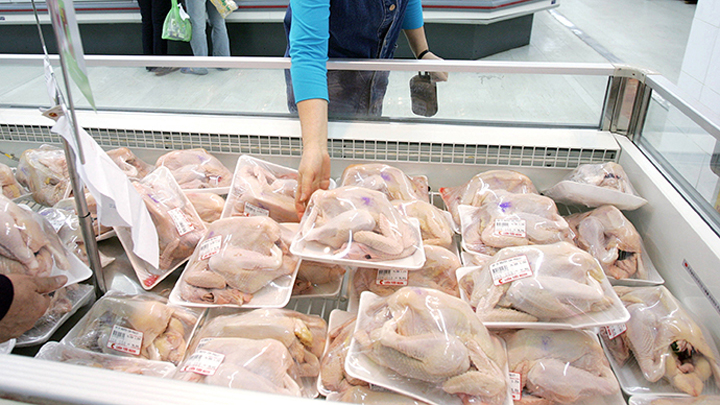Chicken produced in the United States (US) is back on grocery shelves in South Africa for the first time in nearly 17 years following the arrival of five containers of poultry products into the country. Bone-in chicken leg quarters and drumsticks from Tyson Foods and House of Raeford Farms arrived at the Port of Durban on February 19, and were cleared by South African veterinary authorities. The chicken cuts have been repackaged under the Jwayelani Butcheries brand and are now for sale at 21 shops in and around Durban.
South Africa imposed prohibitive anti-dumping duties on imports of US bone-in chicken cuts in 2000, effectively closing the door on its market to US product. Last year, however, the administration of President Barack Obama threatened to withhold benefits to South Africa under the Africa Growth and Opportunity if South Africa did not reopen its market to US chicken, beef and pork. The Obama Administration set a deadline of March 15 for South Africa to fully comply with the agreement on imports of poultry and other meats.
According to the South African National Halaal Authority (Sanha) public relations officer Ebi Lockhat, there were many “vested interests” and the US was not ending the AGOA impasse “out of altruism”.
“They want to open the markers and the products they cannot sell [in the US] they sell it to other countries.”
Local poultry farmers have expressed concern over the importing of poultry from other countries.
“We can debate on the politics and on what should happen, but for me those are secondary issues, the crux of the problem is: how halal is the item?”
Lockhat explains that poultry produced in the US is machine-slaughtered, which is prevalent in most developed countries. In South Africa, however, mechanical slaughter is not used, specifically with regard to halal produce.
“There may be a body or two that accepts mechanical-slaughter but we, in general, do not,” Lockhat stated.
The Islamic faith issues strict regulations with regard to the slaughter of animals. These include; the fact that a Muslim is required to do the slaughtering, the recital of the tasbiya (prayer) over every animal, the required vessels (trachea, oesophagus, jugular vein) must be severed in a single swift move with the use of a sharp knife.
“Machine-slaughter, devoid of human conscience, cannot do that,” stated Lockhat.
A second problem arises at a retail level, since most of the imported products are expected to be imported in portions; not whole birds. Items from the US may, therefore, be mixed with regular stock produced in South Africa.
When it comes to eating at restaurants, the Muslim consumer will find difficulty in trusting the source of the chicken as there are no labels.
Lockhat explained that “[consumers] cannot exercise choice, since they will not know [the difference].”
He further notes that the lack of supervision at “these US poultry suppliers” is a cause for concern.
“We know what the community suffered with the Orion issue, where kangaroo meat came in as beef. Because it came in in portions, we did not know.”
On Friday, the Department of Trade and Industry Minister Rob Davies said his department will be looking into the packaging of US imported chicken, to ensure consumers know where their poultry comes from.
However, the South African Poultry Association (SAPO) said it was concerned over the safety of chicken imports.
“The products that are coming in from the US have higher food safety risks than products from other exporting countries. We don’t think that’s fair that they can export to us at lower standards than we have to farm to because all standards cost money, so it’s a competitive thing as well as a food safety thing.”
Lockhat urged the Muslim community to exercise caution when purchasing meat and poultry products since “we cannot just accept certificate produced by [suppliers] in America.” VOC (Thakira Desai)






 WhatsApp us
WhatsApp us 

